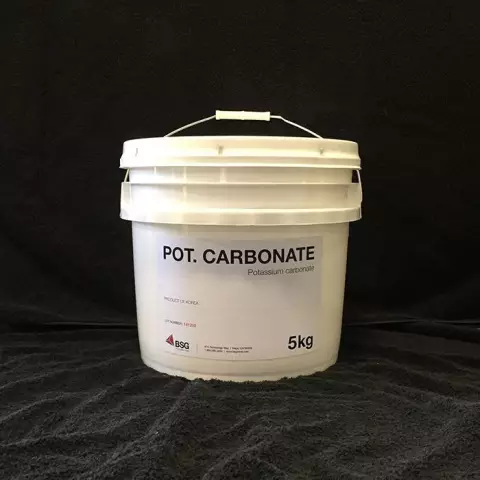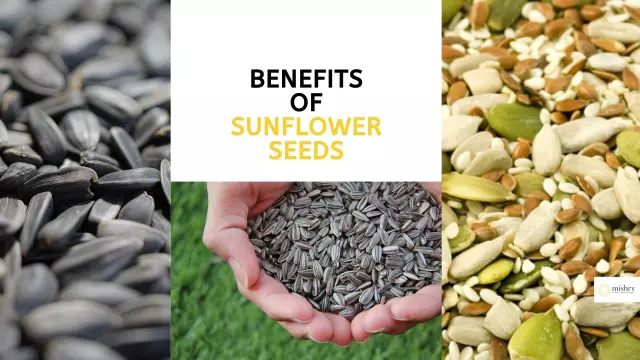- Author Rachel Wainwright wainwright@abchealthonline.com.
- Public 2023-12-15 07:39.
- Last modified 2025-11-02 20:14.
Dill
Dill is a herbaceous annual plant from the Umbrella family, in nature there is only one species of it - odorous dill (garden). Distributed everywhere. This plant is widely used in cooking, as well as in cosmetology and medicine. The medicinal properties of dill have been known since ancient Greece and Rome, where it was used to treat headaches.
The ratio of BJU in the product

Source: depositphotos.com How to burn 40 kcal?
| Walking | 10 min. |
| Jogging | 4 minutes |
| Swimming | 3 min. |
| A bike | 6 minutes |
| Aerobics | 8 minutes |
| Household chores | 13 minutes |
In this plant, all its parts are useful - leaves, stems, roots and seeds. In the summer-autumn season, we try to eat dill as much as possible and prepare it for the winter.
Useful properties of dill
This plant has many medicinal properties due to its rich composition. First of all, dill is a source of vitamins (A, B, C, E, PP) and minerals. Essential oil, which is found most of all in dill seeds, also has very useful properties. The smell of this oil is spicy and pungent, it is widely used in folk and official medicine, cosmetology and cooking.
Dill has a carminative, diuretic, expectorant, hypotensive, laxative effect. It helps to improve the functioning of the gastrointestinal tract, dilates blood vessels, and normalizes metabolism. Dill treatment helps with diseases of the kidneys, liver, biliary tract, ischemic heart disease, arterial hypertension, atherosclerosis and many other pathologies.
Antiseptic and bactericidal properties are characteristic of the essential oil of this plant; it is also used to remove toxins and toxins from the body. Dill helps with flatulence, abdominal pain of a spastic nature, colitis, constipation. This plant is used externally to treat eye diseases.
If you are going to use this plant for medicinal purposes, be sure to consult your doctor, the harm of dill is somewhat exaggerated, but still exists.
The use of dill in traditional medicine
Dill treatment helps with atonic constipation. To do this, use an infusion of seeds, which can be prepared as follows: 2 tablespoons of seeds are poured with 500 ml of boiling water, and infused for 30 minutes. The infusion should be taken at 80-90ml 3 times a day 15-20 minutes before meals.
For gastritis (with high acidity), it is recommended to take a mixture of dill juice and honey (1 teaspoon each).
Dill seed infusion is indicated for hypertension. It is prepared like this: 2 tablespoons of ground seeds are poured with 500 ml of boiling water, infused for an hour, filtered. The infusion should be taken 3-4 times a day before meals, 1-2 tablespoons. In addition, regular use of dill greens is recommended to prevent atherosclerosis.
Also, the infusion of dill seeds helps with constipation, colitis. 4 teaspoons of crushed seeds are poured into 500 ml of boiling water, infused for an hour. You need to take the infusion twice a day for 1/3 - ½ cup.
With infant colic, "dill water", which is prepared from the seeds of this plant, helps well. To do this, 1/2 teaspoon of crushed seeds is poured with 100 ml of boiling water, infused for 1 hour, then filtered, cooled. Every day you need to prepare a fresh infusion, it is not recommended to store it. Infants should take "dill water" before feeding 1 teaspoon (only 4-5 times a day). In modern pharmacology, "dill water" means a solution based on another plant - fennel, since it is he who is more effective in combating colic and increased gas production in newborns.
In adults, with flatulence, the infusion of dill seeds also helps. To make it, 2 tablespoons of seeds should be poured with 1 liter of boiling water, and insisted for 1 hour, then strain. The infusion is taken orally 3 times a day, 120 ml before meals.
Dill treatment helps with nocturnal enuresis, for this 4 teaspoons of crushed seeds are poured into 250 ml of water and insisted overnight in a thermos. Take 1/3 cup in the morning for 10 days, if desired, you can sweeten the infusion with honey.
For anemia, you can use dill leaves and seeds. 1 tablespoon of crushed leaves (or seeds) is poured into 250 ml of milk and simmered over low heat for 10 minutes. It is necessary to drink the broth within 1 day in 3 divided doses.
The beneficial properties of dill will help with insomnia and nervous agitation. For the treatment of these conditions, dill seed powder is prescribed, 1 g 3 times a day before meals.
A decoction of the seeds of this plant is used externally for washing the eyes with conjunctivitis and other diseases. To prepare the broth, 2 teaspoons of seeds are boiled for 10 minutes in 250 ml of water, then cooled and filtered. Rinse your eyes and make lotions only with a fresh solution, you cannot store it.
The lactogonic properties of dill make it an irreplaceable helper for nursing mothers. The infusion of the seeds of this plant is drunk 2 times a day for ½ cup. In addition, dill is included in ready-made teas to enhance lactation (for example, Lactovit).
In order to improve the functioning of the kidneys, liver and intestines, dill tea is recommended.
Since dill has antiseptic and anti-aging properties, it is widely used in the preparation of creams, masks and lotions. You can prepare a special anti-aging decoction of dill (1 tablespoon), raspberry leaves, hops, currants (1 teaspoon each) and dry apple peel (1 tablespoon). All components are poured with 1 liter of water, brought to a boil over low heat and cooked for 10 minutes. After that, filter the broth and consume 1 glass twice a day (best between meals).

Fresh dill can be used to make a whitening mask. To do this, mix 100 g of sour cream with 1 tablespoon of chopped fresh herbs and apply for 20-30 minutes.
For acne, you can use masks made from fresh dill and egg white. The mask is applied to the face for 15-20 minutes, rinse off with cool water. The course of treatment is 2 weeks.
You can also take baths with this plant in order to rejuvenate and tone the skin. Dip 1 bunch of dill into a hot water bath and leave it for 15-20 minutes.
The harm of dill may appear due to excessive enthusiasm for self-medication using this plant, especially in combination with other means. Be sure to check with your pediatrician if you are going to give your baby dill water. In order not to feel the harm of dill on yourself, do not use it if you have low blood pressure.
YouTube video related to the article:
Found a mistake in the text? Select it and press Ctrl + Enter.






